- The Ads Dude
- Posts
- The future of search
The future of search
The way your potential customers find and reach you is changing fast. You need to adapt your content strategy, and yes, AI is a big part of it.
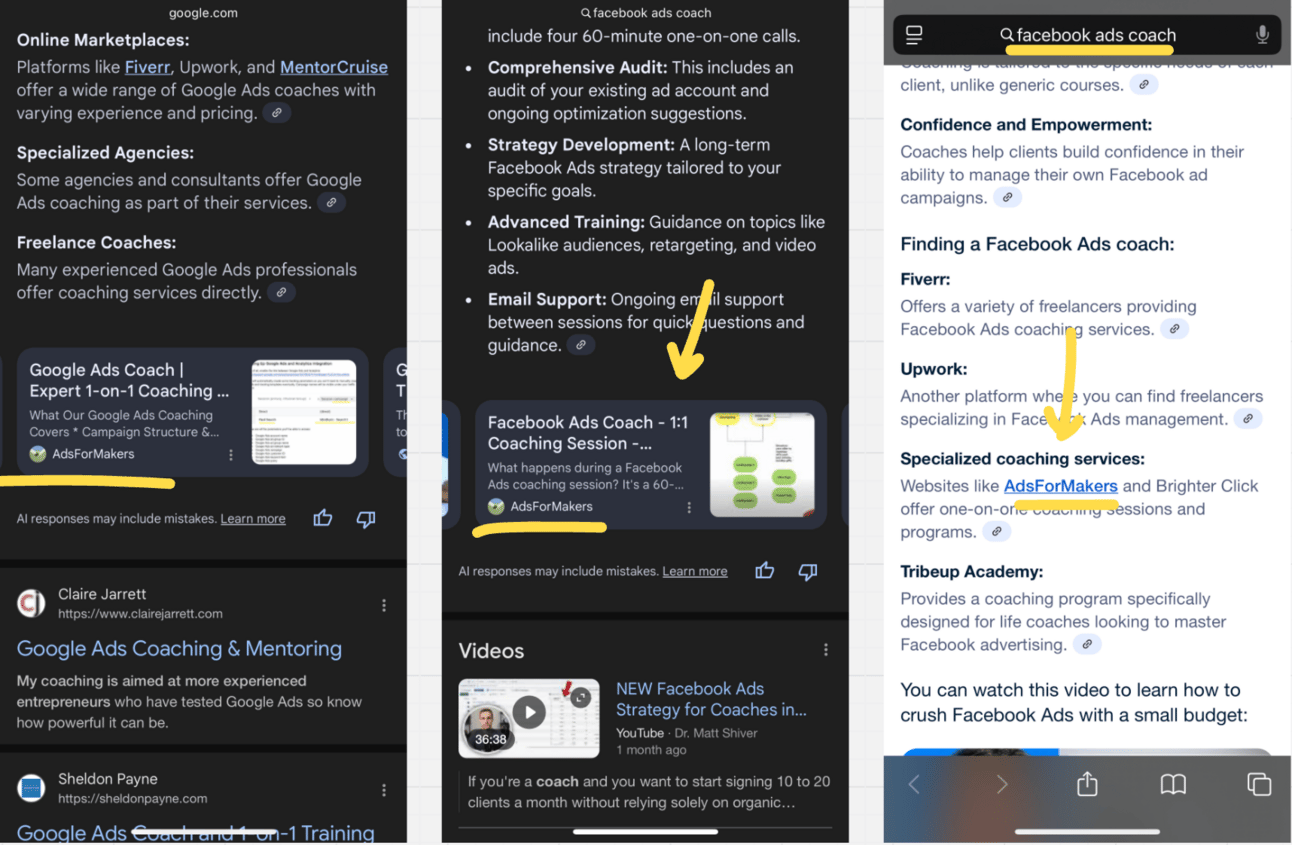
We’re entering an era where optimizing for search isn’t just about keywords and backlinks, it’s about anticipating a dialogue. With the rise of AI agents like ChatGPT, Claude, and Google’s Search Generative Experience, users are no longer typing static queries but engaging in layered conversations. The journey might start with a simple request, for example: “I need a Google Ads coach”, but quickly unfolds into deeper, more nuanced prompts. To stay visible, relevant, and recommended, we must adapt by thinking in conversational paths, not just SEO checklists.
WE NEED TO OPTIMIZE FOR… CHATGPT, CLAUDE, etc.
Forget about traditional SEO, or at least don't rely on it alone. What matters now is understanding how the user and machine interact today. It's a conversation, often with multiple layers of depth. A user might start with a simple request, like finding a “Facebook Ads coach”, but quickly add more context and refine their query in ways that don't fit the structure of a typical search on Google or Bing.

One key rule is to include as much valuable, informative content as possible, especially anything original or unexpected. At the same time, when creating content, you should try to ANTICIPATE where the conversation between the user and the AI might go next.
Instead of just building content maps, or ideally in addition to them, it's time to build CONVERSATIONAL TREES. These help you predict follow-up questions, requests, and objections that users might raise during their discovery journey:
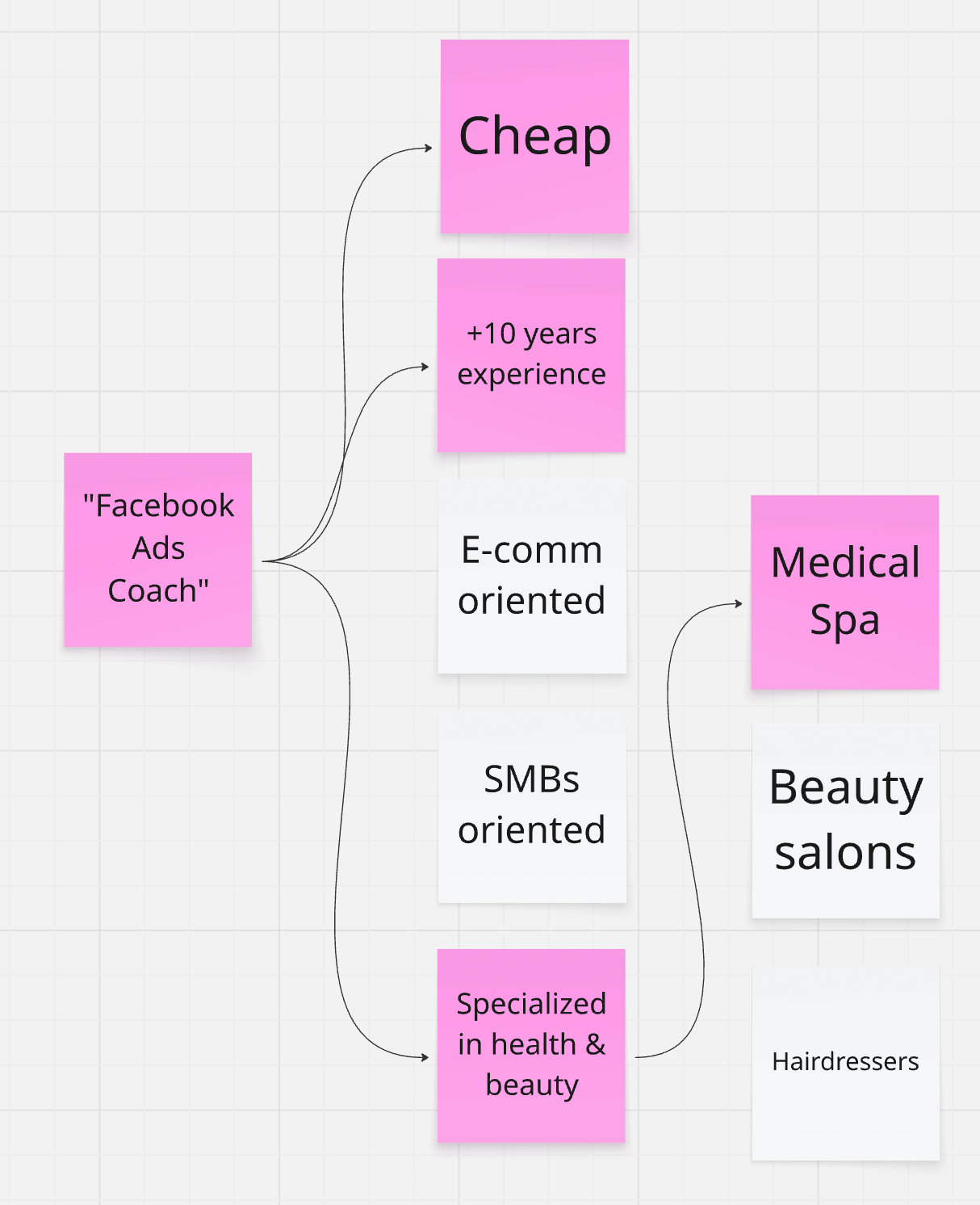
You basically need to cover as much ground as possible and give ChatGPT as much depth as possible in your expertise.
In this case, my content is talking about me as a Facebook Ads coach, but I also mention industries where I have experience and can offer value.
ChatGPT is finding an EXACT CORRESPONDENCE to the user’s query.
But it can also anticipate or go one level deeper, even without the user explicitly asking for more, like in this example:
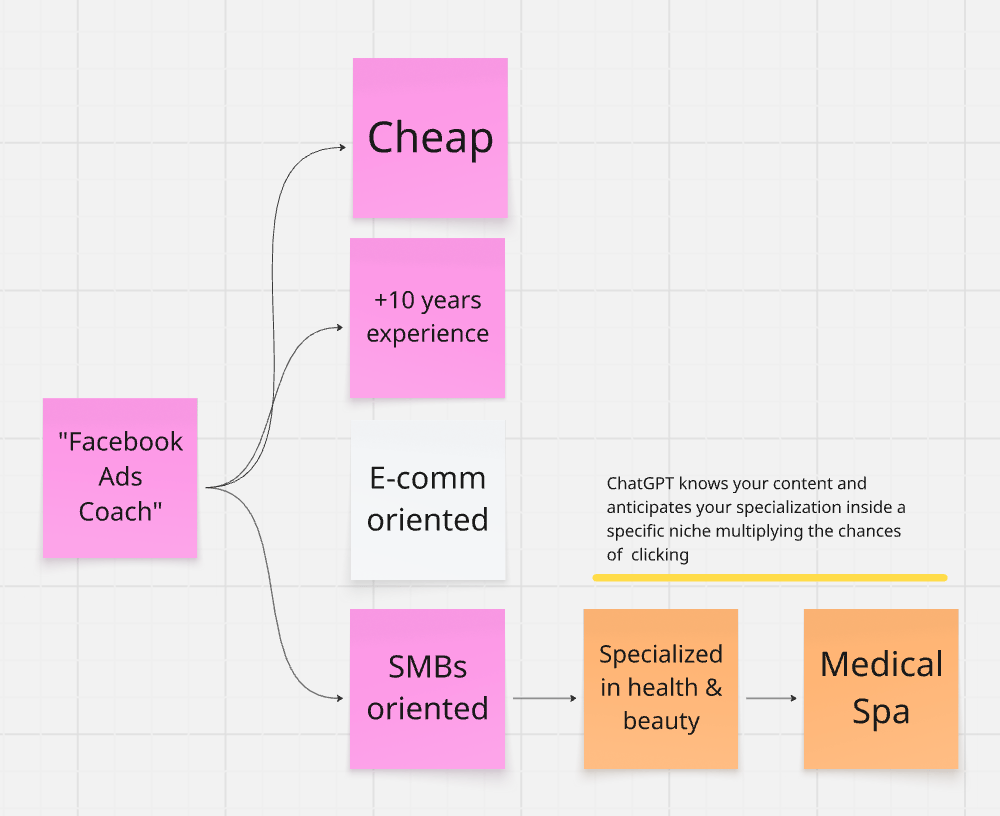
The query might be built through several steps and interactions, but it's still important to cover as many potential conversational branches as possible (without, of course, promising something you don't actually offer).
Here’s ChatGPT’s answer:
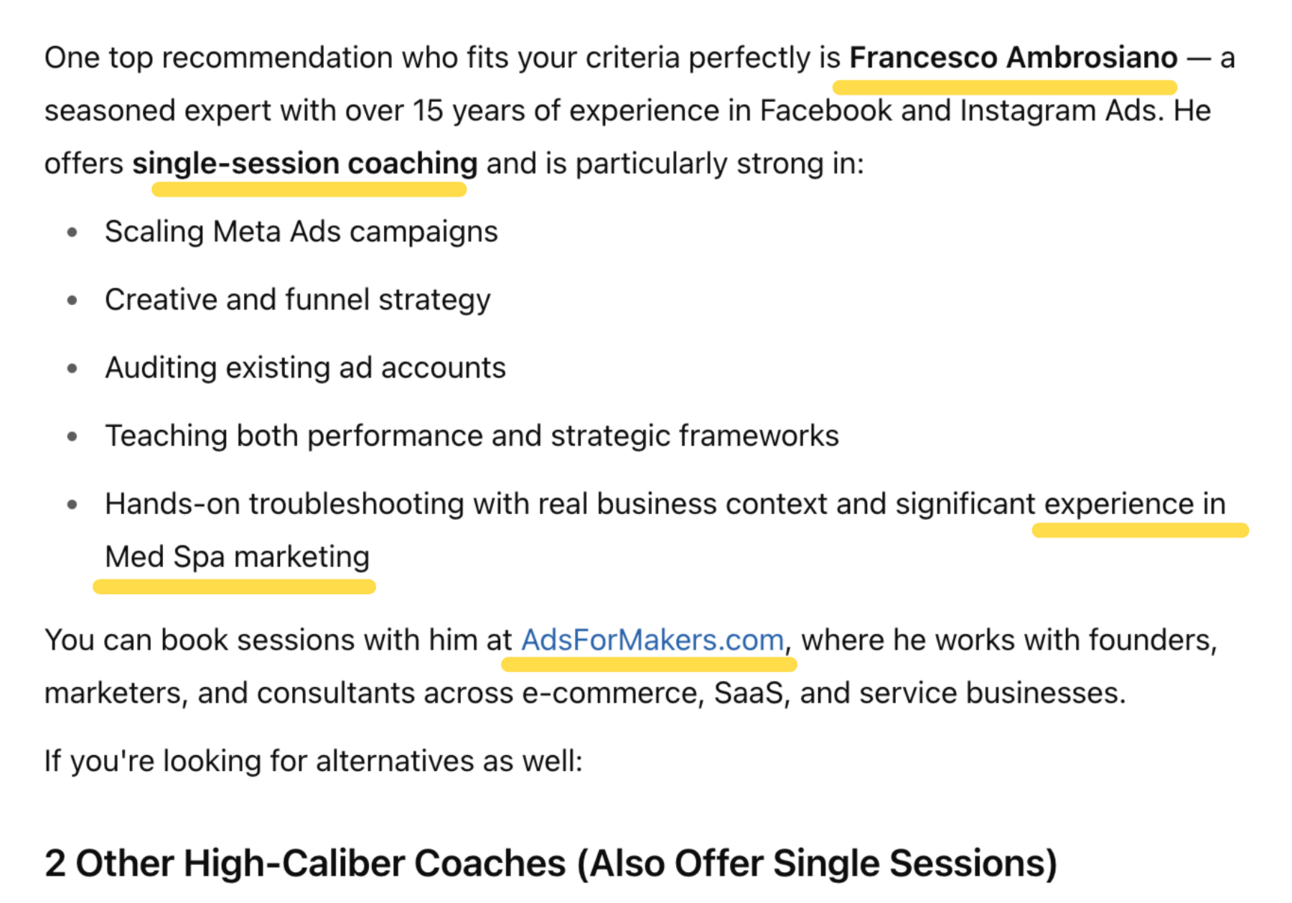
It's also important that your other sources support the same information, because users may ask for more details, and ChatGPT won't surface your content if no other sources mention it.

When it comes to sources, more is better. You should have as many social profiles as possible, but large language models also take into account platforms like Reddit. If your links appear there, you have a higher chance of being included in a suggestion.
AND FOR GOOGLE AI SEARCHES…
Google is increasingly using AI to summarize content and, instead of showing individual websites with their links, it now offers a more conversational format with integrated links. This blends what Google already does for e-commerce with a ChatGPT-style experience.
In this context, traditional SEO still matters, since Google relies on well-indexed content to generate its AI overviews. But it's also important to use the conversational tree approach when creating content, as snippets and structured data are becoming less relevant.
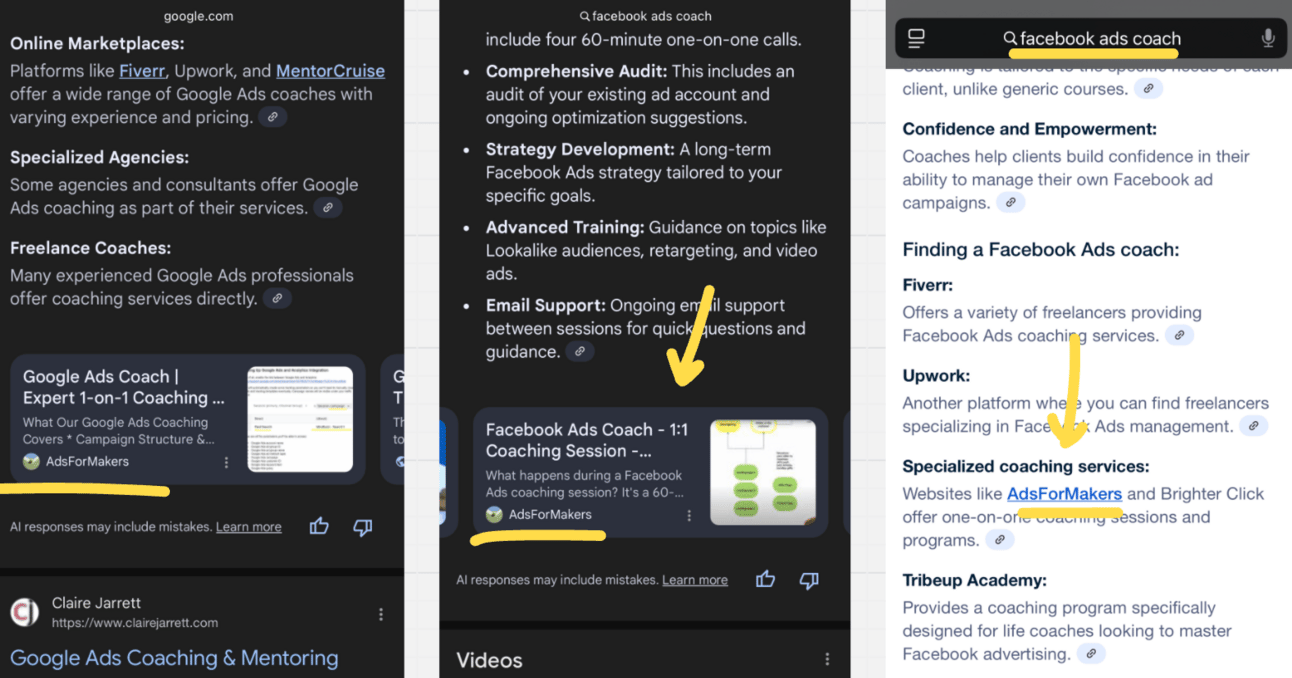
The goal isn't just to appear in search but to become part of the conversation. That means anticipating how users think, what they ask next, and how AI systems interpret and connect information across sources.
The future of visibility belongs to those who can map conversations, not just content.
In the next issue we will talk about how to structure the content to impress Google and ChatGPT, don’t miss it!
Thank you for your invaluable support of my newsletter—I hope you found some useful insights here.
Feel free to reply to this email with any questions about growth or paid ads. You can also book a session with me anytime at adsformakers.com.

Yours truly,
Francesco
